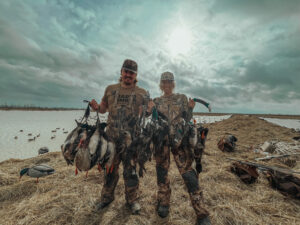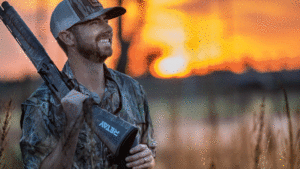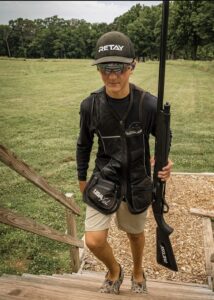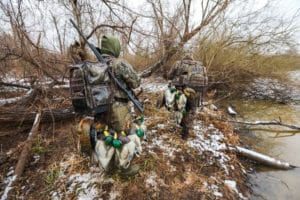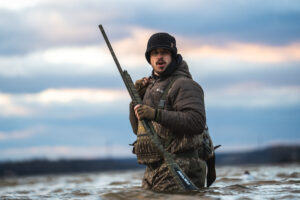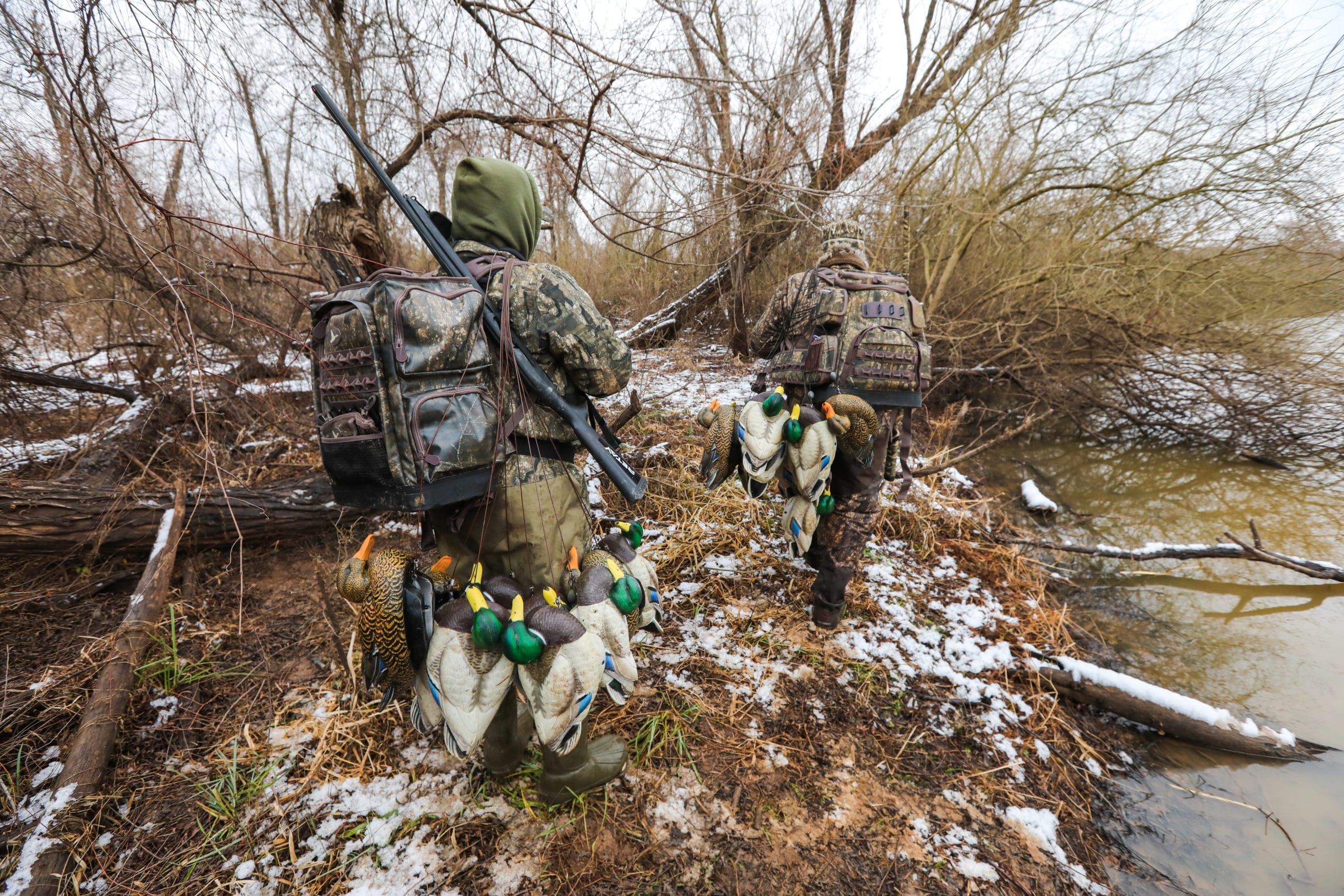
How To Limit Out When the Thermometer Drops to its Limit
The chill in the air, the crunch of frost underfoot, the stillness of a frozen landscape; these are the hallmarks of winter and the call to action for dedicated duck hunters. In cold weather conditions, ducks become a more challenging prey – their behaviors shift, their needs change, and luring them within shooting range becomes a strategic endeavor that requires specialized knowledge, preparation, and gear. This is where ‘Cracking the Code for Cold Weather Ducks‘ comes in.
This comprehensive guide offers deep insights and invaluable tips to conquer the cold and become a successful winter duck hunter. We’ll delve into the importance of scouting and how understanding ducks’ winter feeding and resting habits can give you an upper hand. We explore the gear required to stay safe and warm and maximize your hunting efficiency and effectiveness in the frosty environment.
We’ll share the most effective tactics to attract these cold-weather ducks, from perfecting your decoy spread to refining your calling strategies. Alongside hunting techniques, we’ll highlight the key safety precautions that every cold-weather hunter should know, ensuring that you return safely, soundly, and hopefully successful from each hunt.
So, as the mercury drops and the ducks start to change their patterns, arm yourself with the knowledge you need to crack the cold weather duck hunting code. Whether you’re a seasoned veteran looking to sharpen your skills or a novice venturing out into the chill for the first time, this guide is designed to help you navigate the nuances of cold-weather duck hunting and emerge victorious against the winter’s trials. Let’s dive in.
Table Of Contents
Scouting: Discovering Birds in Cold Weather Duck Hunting
Scouting is a fundamental part of any hunting strategy, even more so when it comes to duck hunting in cold weather conditions. As the seasons shift and temperatures plunge, the behavior and patterns of ducks change, necessitating a dedicated effort to understand and adapt to these changes. Here’s why scouting is so important and how to make it work for winter duck hunting.

Understanding the Need for Scouting
The central idea behind scouting is to gain information about your quarry and their habits – where they’re feeding, where they’re resting, and the routes they take to travel between these locations. This information allows you to set up your blind and decoys in the most effective location, increasing your chances of a successful hunt.
In the colder months, ducks are driven by the need to consume more calories to stay warm. Their preferred feeding locations can change, often moving to areas where food is still accessible despite the freezing conditions. This may mean a shift from water-based feeding locations to agricultural fields, where leftover grains and crops provide a plentiful food source. Ducks may also rest in different areas, often choosing open water where they are safe from terrestrial predators.
The exact timing of ducks’ movements can also change, often with birds choosing to feed at the warmest parts of the day.
Effective Scouting Tips for Cold Weather Duck Hunting
- Spend Time Observing: Dedicate significant time to observing the movement patterns of ducks in your chosen hunting area. Note where and when they feed and rest, and any routes they frequently take.
- Use Binoculars or a Spotting Scope: These can help you observe ducks from a distance without disturbing them.
- Look for Signs: Look for physical signs of duck activity, such as feathers, droppings, or tracks, particularly in potential feeding areas.
- Use Topographical Maps and Aerial Images: These can help you understand the landscape and identify potential feeding and resting areas.
- Visit at Different Times: Ducks’ behavior can vary at different times of the day. Visit your hunting area at various times to understand these patterns.
- Understand the Impact of Weather: Weather conditions can significantly affect ducks’ behavior. Be aware of the local weather forecast and understand how different conditions may alter duck activity.
In conclusion, scouting is a crucial preparation step in cold-weather duck hunting. With the correct approach and adequate time spent in the field, scouting allows you to understand the changing behavior of ducks during winter. This knowledge is a crucial component to achieving a successful and rewarding hunting experience.
Tactics: Cold Weather Decoy Setup, Calling Strategies, and Safety Precautions for Duck Hunting
As winter sets in, hunting strategies must adjust to cater to ducks’ changing habits and the weather’s challenges. Let’s delve deeper into optimizing your decoy setup, refining your calling strategies, and the essential safety precautions for cold weather duck hunting.
Perfecting Your Decoy Setup
Ducks in cold weather are often more desperate for food and are likely to respond to larger decoy spreads as they signify a plentiful food source. However, setting up an effective spread involves more than just increasing the number of decoys. Here are a few tips to enhance your decoy setup in cold weather:
- Diversify Your Spread: Use a variety of decoy species and sizes to mimic a real flock. This can include divers, dabblers, and even geese.
- Motion Decoys: These can be particularly effective in the winter, adding life to your spread and attracting attention from afar.
- Layout: The layout of your spread should be inviting for ducks. Leave an open spot or a ‘landing zone’ within your spread where ducks can land.
- Adapt and Experiment: Different situations call for different strategies. Be prepared to adapt your decoy setup based on what you observe in the field.
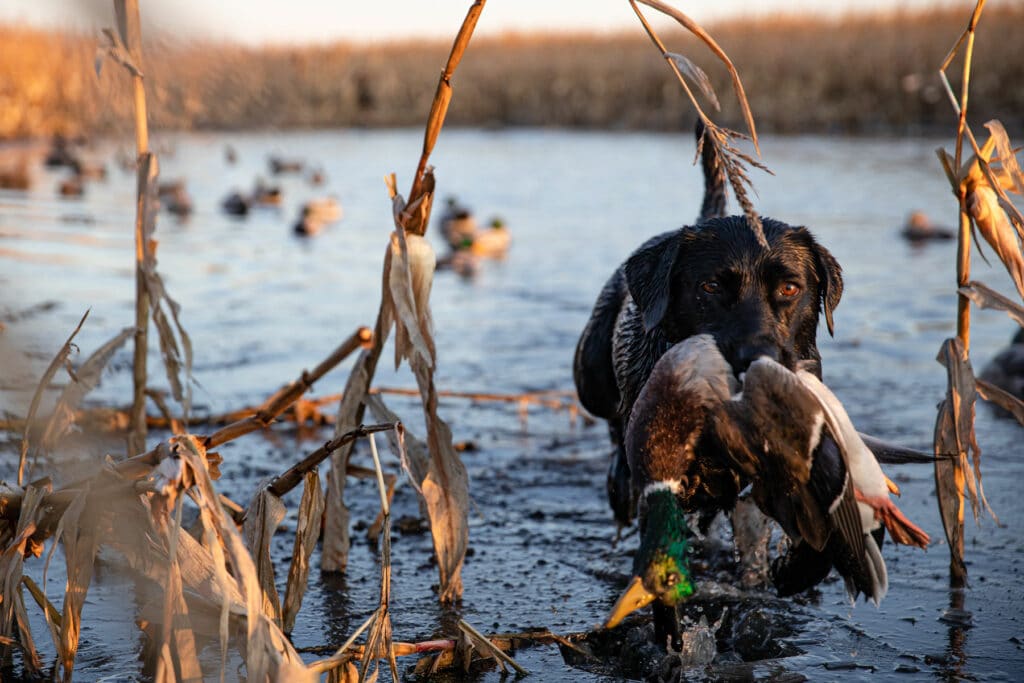
Adjusting Your Calling Strategy
While calling can be an effective way to attract ducks, overcalling can make them wary. During cold weather, ducks often congregate in larger groups and their calling patterns may change. Here’s how you can adjust your calling strategy:
- Observe and Mimic: Pay close attention to the calling patterns and sounds of the ducks in your area. Try to mimic these sounds, adjusting your volume and rhythm as necessary.
- Less is Often More: If ducks respond well to your calls, there’s no need to overdo it. Too much calling can spook wary ducks.
- Use a Variety of Calls: Don’t rely on the basic quack. Incorporate a variety of calls, such as feeding chuckles, comeback calls, or hail calls as appropriate.
Gear: Overlooked Gear for Cold Weather Duck Hunting
While there are the typical pieces of gear that every hunter knows to bring along on a cold weather duck hunt, some items often get overlooked. Here are a few pieces of gear you might not have thought of, but that can make a big difference in your hunting experience.
- Portable Heater: Small, portable heaters can make hunting blind much more comfortable in freezing temperatures, allowing you to stay in the field longer.
- Thermos: A thermos filled with a hot beverage can do wonders to warm you up during a cold day in the field.
- Ice Eater or De-Icer: These can keep water open around your decoys in freezing conditions, making your spread more attractive to ducks.
- Spare Gloves and Socks: Nothing can make you more uncomfortable than wet gloves or socks. Having a spare pair can make your hunting experience a lot more enjoyable.
- Seat or Pad: Standing or sitting on cold ground for hours can be extremely uncomfortable. A seat or a padded mat can provide insulation and comfort.
- Snow Camouflage Cover: Traditional camouflage might not blend in well if you’re hunting in snowy conditions. A snow camouflage cover for you and your equipment could be the key to staying hidden.
- Dry Bag: A dry bag is useful for keeping gear like your phone, spare clothes, or any other items you want to protect from water and moisture.
- Survival Kit: It’s always a good idea to have a survival kit in case of emergencies. This can include items like a whistle, fire-starting supplies, an emergency blanket, and first-aid supplies.
- Snacks: High-calorie snacks are essential for keeping your energy up in cold weather. Opt for items that won’t freeze or get ruined in cold, damp conditions.
- Battery Pack: Cold weather can drain batteries quickly, so carrying a portable battery pack can keep your essential electronics like cell phones or GPS units running.
Remember, being prepared is crucial for a successful hunt. Overlooking these items might not make or break your hunting experience, but they can definitely add an extra layer of comfort, safety, and convenience.
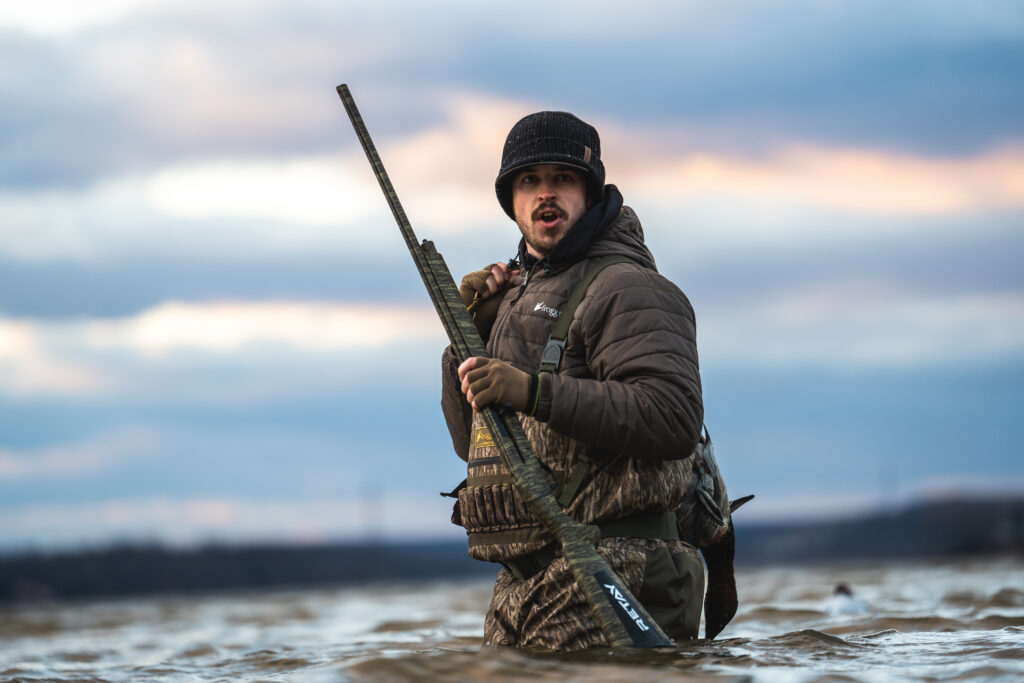
Safety: Prioritizing Safety
Cold weather can be treacherous and poses additional safety risks for hunters. Here’s how to ensure safety while hunting in cold weather:
- Wear a Life Jacket: Always wear a life jacket if you’re hunting around water. Cold water can quickly lead to hypothermia, and a life jacket can save your life if you fall in.
- Tell Someone Your Plans: Always let someone know where you’re going and when you plan to return. This person can alert authorities if you don’t return as expected.
- Pack a Survival Kit: Your kit should include a whistle, fire-starting supplies, a blanket, and first-aid supplies.
- Avoid Hypothermia: Dress warmly, stay dry, and pack high-calorie snacks and hot drinks to keep your body temperature up.
Cold-weather duck hunting presents unique challenges, but with an optimized decoy setup, judicious calling, and strict safety measures, it can be a rewarding and successful experience. Always remember that no hunting trophy is worth risking your safety, and being prepared is your best defense against harsh winter conditions.
